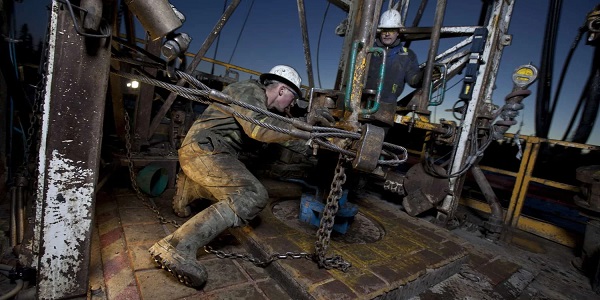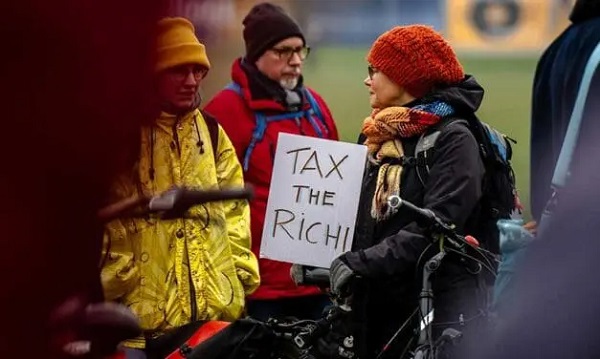Uncategorized
Brazil’s Bolsonaro assumes presidency, promises big changes

BRASILIA, Brazil — Jair Bolsonaro was sworn in as Brazil’s president Tuesday, taking the reins of Latin America’s largest and most populous nation with promises to overhaul myriad aspects of daily life and put an end to business-as-usual governing.
For the far-right former army captain, the New Year’s Day inauguration was the culmination of a journey from a marginalized and even ridiculed congressmen to a leader who many Brazilians hope can combat endemic corruption as well as violence that routinely gives the nation the dubious distinction of being world leader in total homicides.
A fan of U.S. President Donald Trump, the 63-year-old longtime congressman rose to power on an anti-corruption and pro-gun agenda that has energized conservatives and hard-right supporters after four consecutive presidential election wins by the left-leaning Workers’ Party.
Bolsonaro was the latest of several far-right leaders around the globe who have come to power by riding waves of anger at the establishment and promising to ditch the status quo.
“Congratulations to President @jairbolsonaro who just made a great inauguration speech,” Trump tweeted. “The U.S.A. is with you!”
Tuesday’s festivities in the capital of Brasilia began with a motorcade procession along the main road leading to Congress and other government buildings. Bolsonaro and his wife, Michelle, stood up in an open-top Rolls-Royce and waved to thousands of onlookers.
They were surrounded by dozens of guards on horses and plain-clothes bodyguards who ran beside the car.
Once inside Congress, Bolsonaro and his
He promised to combat the “ideology of gender” teaching in schools, “respect our Judeo-Christian tradition” and “prepare children for the job market, not political militancy.”
“I call on all congressmen to help me rescue Brazil from corruption, criminality and ideological submission,” he said.
A short time later, Bolsonaro spoke to thousands of supporters outside, promising to “free Brazil” from socialism and political correctness.
As he spoke, supporters began to chant “Myth! Myth! Myth!”— a nickname that began years ago with internet memes of Bolsonaro and became more common during last year’s campaign. Bolsonaro’s middle name is Messias, or Messiah in English, and many supporters believe he was chosen by God to lead Brazil, an assertion bolstered after Bolsonaro survived a stabbing during a campaign rally in September.
During Tuesday’s speech, Bolsonaro stopped at one point, pulled out a Brazilian flag and wildly waved it, prompting roars from the crowd.
“Our flag will never be red,” Bolsonaro said, a reference to communism. “Our flag will only be red if blood is needed to keep it green and yellow.”
Brasilia was under tight security, with 3,000 police patrolling the event. Military tanks, fighter jets and even anti-aircraft missiles also were deployed. Journalists were made to arrive at locations seven hours before festivities began, and many complained on Twitter of officials confiscating food they had brought for the wait.
The increased security came at Bolsonaro’s request. His intestine was pierced when a knife-wielding man stabbed and nearly killed him, and today Bolsonaro wears a colostomy bag. His sons, politicians themselves, had insisted their father could be targeted by radicals, but security officials have not spoken of threats.
Bolsonaro did little moderating since being elected in October, with progressives and liberals decrying stances that they say are homophobic, sexist and racist.
The new president, who spent nearly three decades in Congress, has also drawn international criticism for his plans to roll back regulations in the Amazon and his disinterest in social programs in a country that is one of the world’s most unequal in terms of income.
On the economic front, where Bolsonaro will ultimately lead Latin America’s largest economy is unknown, as during the campaign he reversed course from previous statist stances with pledges to lead market-friendly reforms. He also promised to overhaul Brazil’s pension system and privatize several state-owned companies, which gave him wide support among financial players.
On Tuesday, Bolsonaro reiterated his commitment to fighting crime in a nation that has long led the world in annual homicides. More than 63,000 people were killed last year.
He wants to tackle the problems in part by shielding police who kill during an operation from criminal prosecution.
“We are counting on Congress to provide the judicial support so police can do their jobs,” Bolsonaro said,
Human rights groups fear that
The most notable foreign leaders who attended were associated with far-right movements: Israeli Prime Minister Benjamin Netanyahu and Hungarian Prime Minister Viktor Orban.
Leftist Presidents Nicolas Maduro of Venezuela, Daniel Ortega of Nicaragua and Miguel Díaz-Canel of Cuba, deemed dictators by Bolsonaro, were uninvited by Bolsonaro’s team after the foreign ministry sent them invitations. Leftist President Evo Morales of Bolivia, however, was invited and warmly embraced Bolsonaro after the ceremony. The United States was represented by Secretary of State Mike Pompeo.
Seven of Bolsonaro’s 22 Cabinet ministers are former military personnel, more than in any administration during Brazil’s 1964-1985 dictatorship. That has sparked fears among his adversaries of a return to autocratic rule, but Bolsonaro insists he will respect the country’s constitution.
Riordan Roett, a professor and director emeritus of Latin American Studies at Johns Hopkins University, noted that generals have administration skills that can be useful in government.
“The danger is that as a former low-ranking military officer, (Bolsonaro) will be swayed by some of the generals to come down hard on criminality, drug dealers, etc., and that may cause a backlash and many innocent people could be caught in the crossfire,” Roett said.
Bolsonaro’s Liberal and Social Party will have 52 seats in Brazil’s 513-member lower house, the second largest bloc behind the Workers’ Party.
Gary Hufbauer of the Peterson Institute for International Economics, a Washington-based
“Bolsonaro needs some quick successes to get off on the right foot with the public and the political elites,” said Hufbauer, adding that a failure to do that would likely reduce Bolsonaro’s honeymoon period to six months.
___
Associated Press video journalist Yesica Fisch reported this story in Brasilia, AP writer Mauricio Savarese reported from Sao Paulo and AP writer Peter Prengaman reported from Rio de Janeiro. AP writer Stan Lehman in Sao Paulo contributed to this report.
Yesica Fisch, Mauricio Savarese And Peter Prengaman, The Associated Press
Uncategorized
Cost of bureaucracy balloons 80 per cent in 10 years: Public Accounts

The cost of the bureaucracy increased by $6 billion last year, according to newly released numbers in Public Accounts disclosures. The Canadian Taxpayers Federation is calling on Prime Minister Mark Carney to immediately shrink the bureaucracy.
“The Public Accounts show the cost of the federal bureaucracy is out of control,” said Franco Terrazzano, CTF Federal Director. “Tinkering around the edges won’t cut it, Carney needs to take urgent action to shrink the bloated federal bureaucracy.”
The federal bureaucracy cost taxpayers $71.4 billion in 2024-25, according to the Public Accounts. The cost of the federal bureaucracy increased by $6 billion, or more than nine per cent, over the last year.
The federal bureaucracy cost taxpayers $39.6 billion in 2015-16, according to the Public Accounts. That means the cost of the federal bureaucracy increased 80 per cent over the last 10 years. The government added 99,000 extra bureaucrats between 2015-16 and 2024-25.
Half of Canadians say federal services have gotten worse since 2016, despite the massive increase in the federal bureaucracy, according to a Leger poll.
Not only has the size of the bureaucracy increased, the cost of consultants, contractors and outsourcing has increased as well. The government spent $23.1 billion on “professional and special services” last year, according to the Public Accounts. That’s an 11 per cent increase over the previous year. The government’s spending on professional and special services more than doubled since 2015-16.
“Taxpayers should not be paying way more for in-house government bureaucrats and way more for outside help,” Terrazzano said. “Mere promises to find minor savings in the federal bureaucracy won’t fix Canada’s finances.
“Taxpayers need Carney to take urgent action and significantly cut the number of bureaucrats now.”
Table: Cost of bureaucracy and professional and special services, Public Accounts
| Year | Bureaucracy | Professional and special services |
|
$71,369,677,000 |
$23,145,218,000 |
|
|
$65,326,643,000 |
$20,771,477,000 |
|
|
$56,467,851,000 |
$18,591,373,000 |
|
|
$60,676,243,000 |
$17,511,078,000 |
|
|
$52,984,272,000 |
$14,720,455,000 |
|
|
$46,349,166,000 |
$13,334,341,000 |
|
|
$46,131,628,000 |
$12,940,395,000 |
|
|
$45,262,821,000 |
$12,950,619,000 |
|
|
$38,909,594,000 |
$11,910,257,000 |
|
|
$39,616,656,000 |
$11,082,974,000 |
Uncategorized
Trump Admin Establishing Council To Make Buildings Beautiful Again


From the Daily Caller News Foundation
By Jason Hopkins
The Trump administration is creating a first-of-its-kind task force aimed at ushering in a new “Golden Age” of beautiful infrastructure across the U.S.
The Department of Transportation (DOT) will announce the establishment of the Beautifying Transportation Infrastructure Council (BTIC) on Thursday, the Daily Caller News Foundation exclusively learned. The BTIC seeks to advise Transportation Secretary Sean Duffy on design and policy ideas for key infrastructure projects, including highways, bridges and transit hubs.
“What happened to our country’s proud tradition of building great, big, beautiful things?” Duffy said in a statement shared with the DCNF. “It’s time the design for America’s latest infrastructure projects reflects our nation’s strength, pride, and promise.”
“We’re engaging the best and brightest minds in architectural design and engineering to make beautiful structures that move you and bring about a new Golden Age of Transportation,” Duffy continued.
Mini scoop – here is the DOT’s rollout of its Beautifying Transportation Infrastructure Council, which will be tasked with making our buildings beautiful again. pic.twitter.com/
9iV2xSxdJM — Jason Hopkins (@jasonhopkinsdc) October 23, 2025
The DOT is encouraging nominations of the country’s best architects, urban planners, artists and others to serve on the council, according to the department. While ensuring that efficiency and safety remain a top priority, the BTIC will provide guidance on projects that “enhance” public areas and develop aesthetic performance metrics.
The new council aligns with an executive order signed by President Donald Trump in August 2025 regarding infrastructure. The “Making Federal Architecture Beautiful Again” order calls for federal public buildings in the country to “respect regional architectural heritage” and aims to prevent federal construction projects from using modernist and brutalist architecture styles, instead returning to a classical style.
“The Founders, in line with great societies before them, attached great importance to Federal civic architecture,” Trump’s order stated. “They wanted America’s public buildings to inspire the American people and encourage civic virtue.”
“President George Washington and Secretary of State Thomas Jefferson consciously modeled the most important buildings in Washington, D.C., on the classical architecture of ancient Athens and Rome,” the order continued. “Because of their proven ability to meet these requirements, classical and traditional architecture are preferred modes of architectural design.”
The DOT invested millions in major infrastructure projects since Trump’s return to the White House. Duffy announced in August a $43 million transformation initiative of the New York Penn Station in New York City and in September unveiledmajor progress in the rehabilitation and modernization of Washington Union Station in Washington, D.C.
The BTIC will comprise up to 11 members who will serve two-year terms, with the chance to be reappointed, according to the DOT. The task force will meet biannually. The deadline for nominations will end Nov. 21.
-

 Alberta2 days ago
Alberta2 days agoAlberta Sports Hall of Fame Announces Class of 2026 Inductees
-

 Business2 days ago
Business2 days agoCanada’s climate agenda hit business hard but barely cut emissions
-

 Business1 day ago
Business1 day agoCarney’s Toronto cabinet meetings cost $530,000
-

 Bruce Dowbiggin1 day ago
Bruce Dowbiggin1 day agoIntegration Or Indignation: Whose Strategy Worked Best Against Trump?
-

 Censorship Industrial Complex2 days ago
Censorship Industrial Complex2 days agoConservative MP Leslyn Lewis slams Liberal plan targeting religious exemption in hate speech bil
-

 Health2 days ago
Health2 days ago23,000+ Canadians died waiting for health care in one year as Liberals pushed euthanasia
-

 Artificial Intelligence2 days ago
Artificial Intelligence2 days agoAI is accelerating the porn crisis as kids create, consume explicit deepfake images of classmates
-

 MAiD1 day ago
MAiD1 day ago101-year-old woman chooses assisted suicide — press treats her death as a social good










